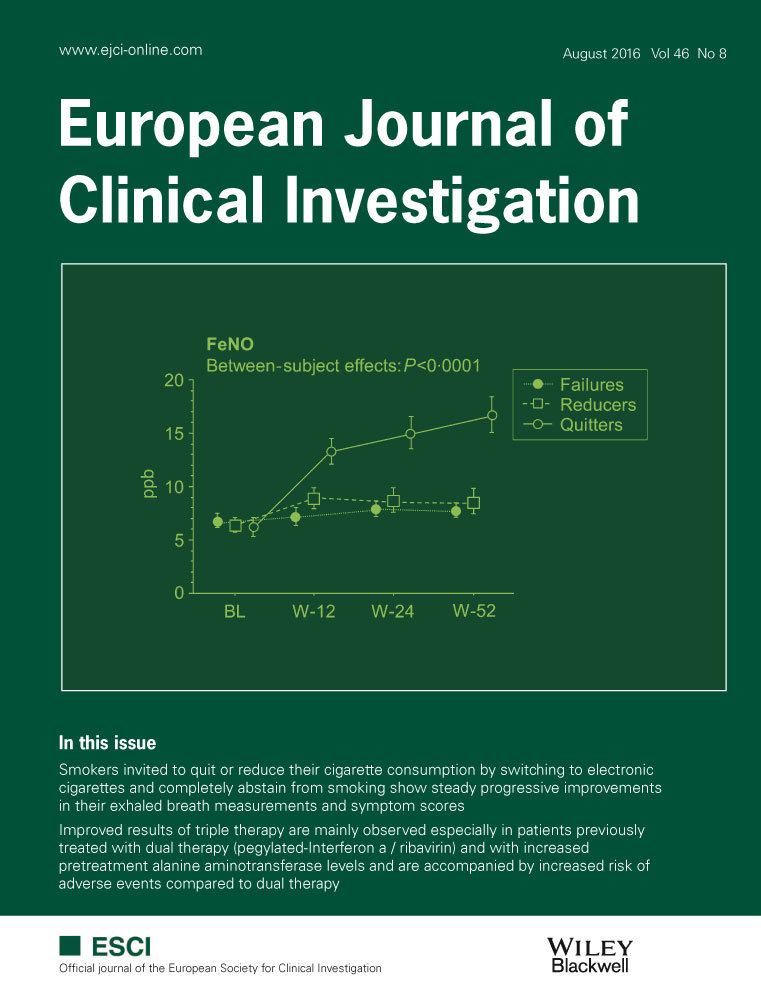Effect of endothelin-1 and endothelin receptor blockade on the release of microparticles
Abstract
Background
Increased levels of endothelial cell microparticles (EMP) are known to reflect endothelial dysfunction (ED). In diabetes mellitus type 2 (T2DM), the expression of endothelin (ET)-1 is increased. As treatment with an ET-1 antagonist significantly inhibited atherosclerosis in animal models, we sought to investigate whether treatment with ET-1 antagonists affects EMP levels in vitro and in vivo in patients with T2DM.
Materials and methods
In vitro study: Human umbilical vein endothelial cells (HUVEC) were stimulated with ET-1 alone and ET-1 in combination with a dual ET-A and ET-B endothelin receptor blocker. In vivo study: Patients with T2DM were randomized to treatment with the ET receptor antagonist bosentan or placebo. After 4 weeks, the patients were re-examined and blood samples were obtained. EMP counts in supernatants and plasma samples were determined using flow cytometry.
Results
In vitro study: In supernatants of ET-1-stimulated HUVECs, the increased release of EMP was reduced significantly by co-incubation with an ET-1 receptor antagonist (e.g. CD31+/CD42b-EMP decreased from 37·1% ± 2·8 to 31·5% ± 2·8 SEM, P = 0·0078). In vivo study: No changes in EMP levels in blood samples of patients with T2DM were found after 4 weeks of bosentan treatment (n = 36, P = ns).
Conclusions
Our in vitro results suggest that ET-1 stimulates the release of EMP from HUVECs via a receptor-dependent mechanism. Co-incubation with an endothelin receptor blocker abolished ET-1-dependent EMP release. However, treatment with bosentan for 4 weeks failed to alter EMP levels in patients with T2DM. Other factors seem to have influenced EMP release in patients with T2DM independent of ET-1 receptor-mediated mechanisms.




